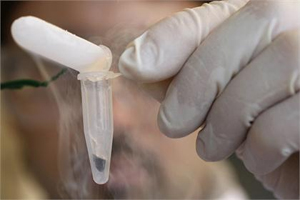 Washington, Dec 2: In a first, an Indian-origin doctor in the US has performed a unique "life-saving" heart procedure - that involves injecting the patient's own stem cells into the organ - on Hollywood actor Ernie Lively.
Washington, Dec 2: In a first, an Indian-origin doctor in the US has performed a unique "life-saving" heart procedure - that involves injecting the patient's own stem cells into the organ - on Hollywood actor Ernie Lively.
Amit Patel from the University of Utah performed the historic procedure on Lively - 'Gossip girl' actress Blake Lively's father - using new technique of retrograde gene therapy on a human heart to repair damaged muscle and arteries.
The 66-year-old actor has credentials that include a long list of TV and film appearances, including Passenger 57 and the Sisterhood of the Travelling Pants.
He had suffered a massive heart attack in 2003, which left him functioning on half a healthy heart. As time marched on, his ejection fraction - the measurement of the percentage of blood leaving the heart each time it contracts - continued to decline.
Lively connected with Patel, director of Clinical Regenerative Medicine and Tissue Engineering and an associate professor in the Division of Cardiothoracic Surgery at the University of Utah School of Medicine.
Lively became a patient of Patel's in February, when Patel saved Lively's life after a complication with an angiogram left the actor with a severed aorta and problems with his coronary arteries.
This month, Lively got his wish when he became the first patient in the world to undergo retrograde gene therapy at University of Utah Hospital, a novel procedure designed to deliver stem cells to the heart to repair damaged muscle and arteries in the most minimally invasive way possible.
Patel started investigating cell and gene-based therapies for the treatment of heart disease 12 years ago, but only recently received FDA approval to try the therapy on Lively.
The first successful procedure was performed on Lively on November 7.
"It's incredible. Imagine having a heart procedure that can potentially regenerate or rejuvenate your heart muscle - and it's done as an outpatient procedure," said Patel.
Patel uses a minimally invasive technique where he goes backwards through a patient's main cardiac vein, or coronary sinus, and inserts a catheter.
He then inflates a balloon in order to block blood flow out of the heart so that a very high dose of gene therapy can be infused directly into the heart. The unique gene therapy doesn't involve viruses (a rarity for gene therapy, Patel notes) and is pure human DNA infused into patients.
The DNA, called SDF-1, is a naturally occurring substance in the body that becomes a homing signal for a patient's body to use its own stem cells to go to the site of an injury.
Once the gene therapy is injected, the genes act as "homing beacons." When the genes are put into patients with heart failure, they marinate the entire heart and act like a look out, he said.
"I woke up this morning and told my wife, 'I haven't felt this good in years," said Lively after returned home where he is recovering.





Comments
Add new comment